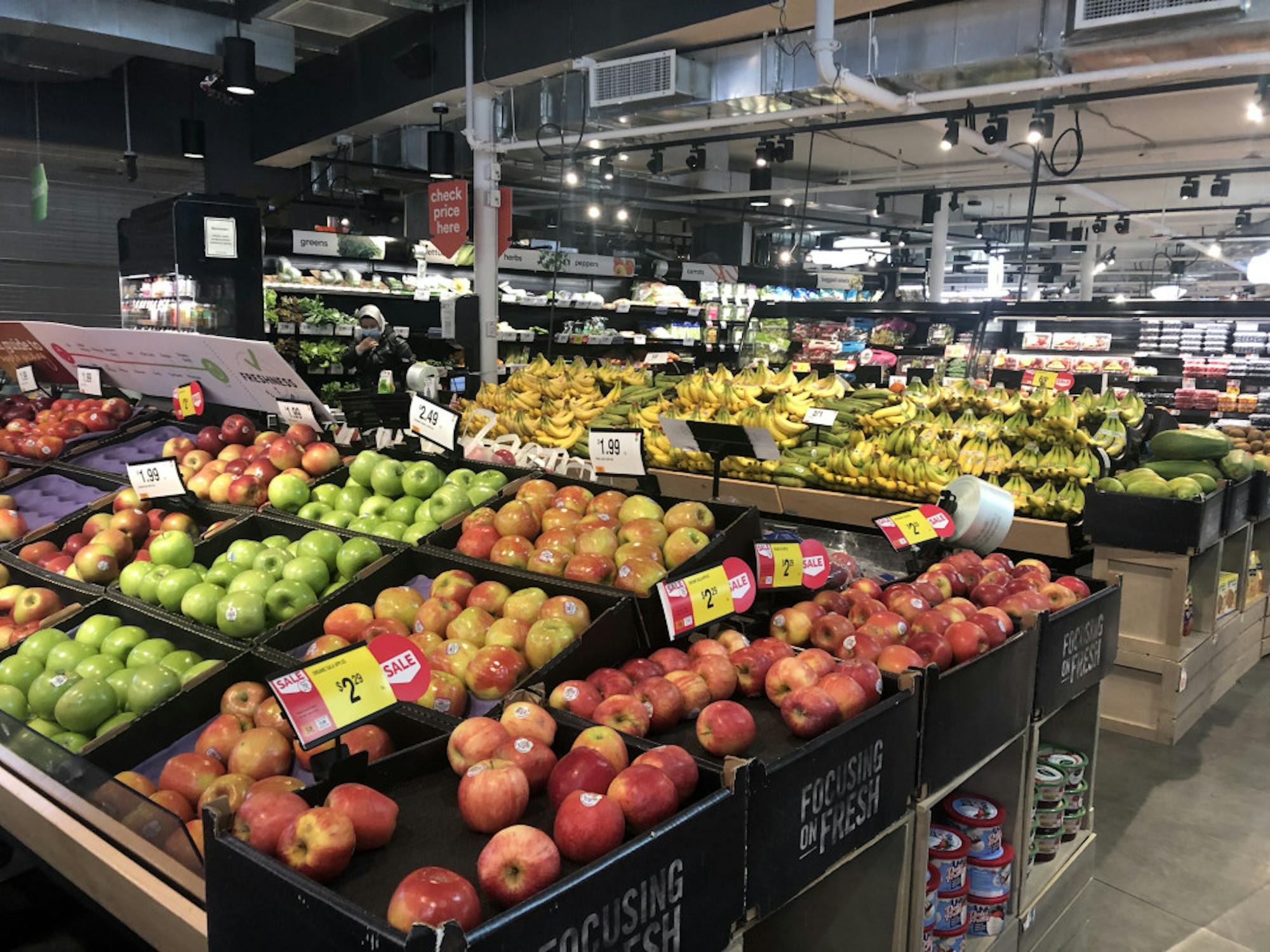Boston mayoral candidate Michelle Wu has decided to make Boston’s food system and economy one of her priorities if she prevails in the Nov. 2 election. Her plan, the Food Justice Agenda for a Resilient Boston, addresses the food system from a number of angles.
Wu’s plan is grounded in the idea of food justice, which considers the need for food alongside other societal factors such as race and class, according to Cathy Stanton, a senior lecturer in the Department of Anthropology.
“Food justice is a way of thinking about food that takes into consideration racial, environmental, economic class, nation[ality], various kinds of disparities, oppressions, disenfranchisement and how those intersect with a whole host of issues around food,” Stanton said.
Julian Agyeman, professor of urban and environmental policy and planning and interim chair of urban and environmental policy and planning at Tufts’ Friedman School of Nutrition Science and Policy, provided some examples of what food justice might look like in practice.
“Food justice is both an idea and a movement that people should be able to access to [and be able to] procure fresh, culturally appropriate, affordable, nutritious food in close proximity to where they live without the use of cars,” Agyeman said. “It’s a step up, if you like, from what’s called food security, which is food banks, emergency food system[s]. We know that we need that at present, but food justice is working to end food insecurity and put people on a path to having much more say in their local food system.”
Wu’s plan works toward the goal of food justice in five main ways: investing in Boston’s food businesses, building coalitions, expanding Boston residents’ access to affordable food that is also culturally appropriate and nutritious, using public procurement of food and investing in food chain workers in Boston.
Tali Robbins (N ‘20), policy director in Michelle Wu’s city council office, was the head researcher and writer of Wu’s Food Justice Agenda. Robbins worked with a team of graduate, undergraduate and high school policy fellows in summer 2020 to write the plan.
According to Robbins, food justice is not universally considered as an essential area of public policy, but Wu has been passionate about food justice for years, having been impacted by her own experiences with Boston’s food system.
“[Wu] was a food business owner before she ever got into politics,” Robbins said. “She opened a small tea shop that was meant to be a family-owned restaurant, so sort of her first entry into the food policy world was as a business owner, knowing that it takes an enormous amount of persistence to cut through the red tape and bureaucracy to be able to open a business and keep a business running.”
Although Wu intended to have a food justice agenda even prior to the COVID-19 pandemic, Robbins noted that the pandemic significantly influenced the writing of the plan.
“I think COVID was sort of a wake up call for a lot of people to realize just how important food issues are and food policy is to the day to day functioning of our lives … and just how interconnected all these issues are –– how food issues are labor issues; food issues are climate issues; food issues are housing issues,” Robbins said.
Agyeman notes that, even among the food justice plans that exist, Wu’s plan is uniquely progressive.
“I have looked at food action plans, food agendas for cities in the United States and around the world," Agyeman said. "This is quite simply the most progressive politically."
Agyeman adds that part of what makes Wu’s plan stand out is its emphasis on the food system’s interactions with the local economy.
“This is not simply a food justice agenda, this is a food economy agenda,” Agyeman said. “She is looking to invigorate and reinvigorate Boston’s local food economy. It’s not just about providing food. It’s about providing opportunity for employment through food.”
Both Agyeman and Stanton affirmed their confidence in Wu’s Food Justice Agenda.
“It’s very, very broad, but I think for a policy statement, that’s what you want to do,” Stanton said. “It’s very bold and ambitious in the right ways.”
While the relationship between politics and the food system has changed over time, the two remain incredibly interconnected, according to Winton Pitcoff, director of the Massachusetts Food Systems Collaborative, a nongovernmental organization that does lobbying, policy, advocacy and education regarding the statewide food system.
“They’re inextricably linked … There’s connections on both the consumption side as well as the production side,” Pitcoff said. “The most obvious impact has to do with wages and taxation. Food is cheap, yet people are still going hungry, and the farmers who produce the food are still unable to afford to continue being farmers.”
Agyeman adds that politics throughout history, such as redlining, have affected Boston’s food system.
“It’s no coincidence that the neighborhoods where people can’t get fresh, culturally appropriate, affordable, nutritious food — those neighborhoods are the same neighborhoods that were redlined, that people from low income and BIPOC people live in,” Agyeman said. “This is no accident … Our foodscapes are sculpted by politicians.”
Moving forward, Agyeman is confident that Wu’s Food Justice Agenda will work toward addressing the connection between racism and Boston’s food system.
“A lot of politicians now, such as Michelle Wu, are trying to undo that racist supremacist legacy,” Agyeman said.
Robbins is hopeful that Wu’s plan, if implemented, will help indirectly bring about other positive changes in Boston, including addressing the racial disparities Agyeman mentions.
“I think there’s a real power in getting down to the very local level and making the case that food is important, and then it can be sort of a lever for broader change along all of these related issue areas,” Robbins said.






